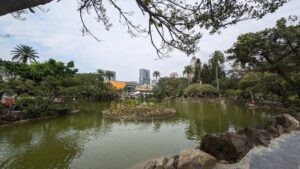As mentioned before, the reason for reserving tax sources is to prevent the next generation from being unable to pay inheritance tax, resulting in them abandoning the property that you have accumulated with great difficulty.
Therefore, we need to plan ahead, set aside this sum of money, and deposit it as insurance in advance to directly avoid being included in the inheritance tax.
On the day you die, before the government calculates your huge assets throughout your life and uses them to collect high inheritance taxes from your heirs, it has already prepared the compensation in advance, so that your beloved relatives and friends can directly use it to pay the huge tax and then pass it on to them smoothly.

As for how to reserve tax sources?
The simplest method, of course, is to use the tax-free amount of insurance. After all, the tax-free amount of insurance has been adjusted to "37.4 million" this year. In order to exceed this claim amount and be taxed, your assets must be at least nearly 200 million yuan.
If your assets exceed 200 million, you are of course more than welcome to consult us on how to reasonably reduce your tax burden through different combinations of various aspects. Otherwise, do you think that I have been studying taxation for a whole year for nothing?
Regarding using professional knowledge of land administration to reasonably save taxes, it depends on the year in the Republic of China when your land and house were purchased, the future growth potential of the geographical location, and then deciding whether to use direct inheritance, gift inheritance, or sale inheritance. It all depends on how long you plan.
1. Direct inheritance is subject to inheritance tax
When selling the house in the future, the question is whether the old tax system can be used to calculate the gains and taxes when the house was originally acquired.
2. Gift inheritance is subject to gift tax
When you sell the house in the future, use the time you received the house now, and then use the current price announced by the government to calculate the real estate tax and profit tax.
3. Buying and selling succession is to make high real price registration
It is usually used when the property was acquired at a very low price in the year it was acquired and under the old tax system, and there is also a plan that the next generation will continue to hold it, and it will not be bought or sold until it has been at least ten years.
In this way, the cheapest old tax system can be paid in advance, and the actual price can be registered higher. When selling in the future, the added value can be reduced to the best tax burden when taxing.
But if your land or property is in a remote place, has not increased much over the years, and your heirs will never sell it, then there is no need to consider buying and selling it as inheritance. After all, it is meaningless and will only result in paying more taxes.
However, if the location of your land or property has a lot of room for appreciation, such as an urban planning area, and the heirs may have to wait more than ten years to sell it, then inheritance through buying and selling is definitely recommended.
There is also a more special situation, which is the case of my own actual client, and that was obtained after urban renewal.
Because the new house acquired after urban renewal is not a traditional buying and selling transaction, the transaction price will not be the current value of the new house, nor will it be listed again at the purchase price of the old house in the past.
After all, there is no buying and selling behavior, no real-price registration in the traditional sense, but an exchange of rights for old ones for new ones, with the resulting rights value as the benchmark.
To put it simply, if you ignore the future growth potential in more detailed items and the issue of average remaining life expectancy after urban renewal in recent years, direct inheritance is definitely the best way to save taxes.
If you look at the details, of course, you will also find out what the property is used for, whether it is for self-residence or not, whether it can be rented out for public benefit, whether it is an old house, a historical site, or a special structure, whether the same space can be divided for planning, and if there are luxurious equipment, whether you can apply for a deduction... there are many different options.
Because the land administration issues are too broad, please inquire privately for details.
However, the simpler and more brutal way is, of course, to plan in advance with insurance, which is also the most well-known way.
But there are hundreds of thousands of types of insurance, how can I know which one is the most suitable?
That is because there are hundreds and thousands of types of insurance, so they are suitable for all kinds of people. How can you easily choose the category that suits you best?
1. First confirm how much assets you have
To help you plan, we must know your current total assets and the sources of your funds, so that we can classify them and deal with the transfer allocation accordingly.
2. How old are you at this stage?
The age issue depends on the survival period, that is, the average remaining life span. In more plain words, it is how long you can "live". The planning methods for different age groups are different, so it depends on how long the period of time is.
3. Are the various allocations of your existing insurance policies sufficient?
When it comes to insurance planning, although we are talking about reserving tax sources, if you suddenly become seriously ill, and the insurance policies you bought in the past are not enough to support your medical expenses, then the reserved tax sources will definitely be used.
It is impossible to always think about the next generation and then leave the disease untreated!
Therefore, while using insurance policies to reserve tax sources, we should also carefully adjust whether medical insurance is fully supplemented. At least the average remaining life expectancy announced by the Ministry of the Interior should be calculated. Family history must also be taken into consideration, such as whether there are genetic diseases, average life expectancy, and many other issues.
It seems like I have talked about a lot, but this is just a preliminary assessment of how to help you do the most basic risk management of reserved tax sources.
So do you think that just an ordinary finance major, or those guys who have learned some superficial knowledge online, who talk about SOP canned insurance policies as if they are very knowledgeable, can simply help you achieve the most accurate way to reduce your tax burden and maximize your assets?
After all, risk control requires a close understanding of all your problems. In plain words, it requires all your problems to be laid out in front of you. You need to know all your QBQs (The question behind the question), the questions behind the questions.
Maybe you don’t know what you want psychologically, or you don’t say it out loud because of fear.
So if someone can help you make the best adjustments, then he must be your best friend in your life. After all, he is the closest partner who can make you truly worry-free in this life!
What do you really need? It is always more important than what I can give you!
In the next chapter, we will briefly talk about how to use different insurance policies currently on the market and combine them for different ages to increase and magnify assets while making the best reserved tax sources.
Also, if after several years you find that there is no next generation of heirs, or if those legal heirs make you feel very disgusted, how can you convert the original reserved tax sources and assets and transfer them all to yourself so that your second half of life can be more enjoyable and comfortable?
This website does not have those annoying ads that block the webpage and hinder reading!
If you think the article I wrote is helpful to you, could you please fill in a Questionnaire, allowing me to better understand everyone’s needs and write more high-quality content.








